The Vietnamese paradox.
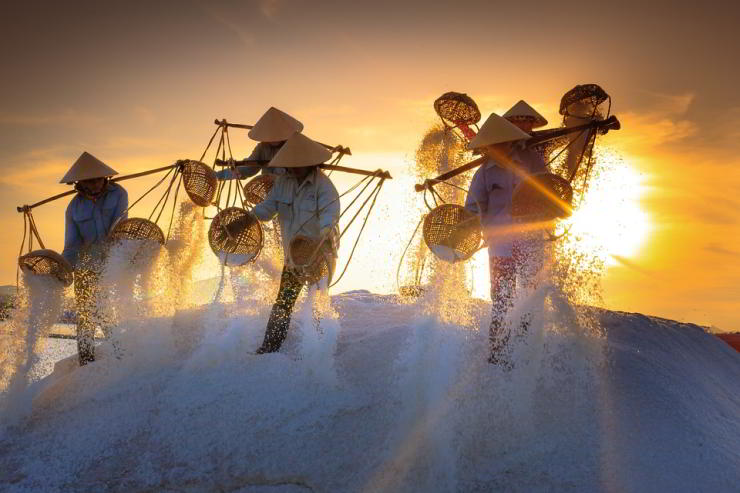
The middle class grows, but inequality increases. Galloping corruption, total party control over the people, an ambiguous relationship with China. Bamboo diplomacy.
Vietnam’s first impression is of spectacular economic development: modern districts of high-rise residential buildings, vast shopping malls, heavy urban traffic where cars now compete with myriads of motorcycles and where the bicycles of the past have disappeared, frequently updated transport infrastructure, electronic products, clothing, coffee, and rice dominating exports, and a continuously growing middle class.
Vietnam is now a lower-middle-income country. Its ambition to move to the next category in 2030 is realistic. The national goal is to become a “market economy with socialist orientation” by 2045.
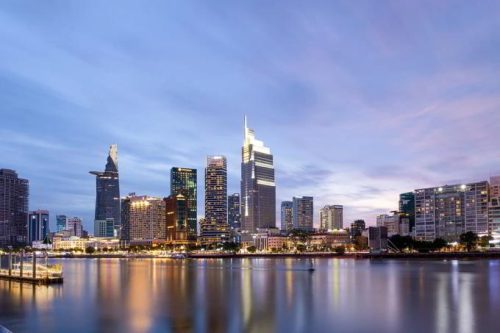
Vietnam, Ho Chi Minh. Bitexco financial tower. Pixabay
It was the economic opening that began in 1986 with the policy of Döi Moi (renewal) that allowed Vietnam’s economic progress by implementing the official slogan of “market economy with socialist orientation”. This real break from the previous Marxist – but not Leninist – orthodoxy was necessary to put an end to widespread poverty, the crisis created by the devastation of twenty years of war and the inefficiency of the socialist model of state ownership of the means of production. Replacing Soviet aid and that of brother countries with a new development policy.Vietnam has thus become a showcase for development aid policy, a showcase that is not very common. As a result of its success, the country has attracted foreign investment. Occupying a central place in the economic dynamism of the country, first Asian (South Korea, Singapore, Japan, China, Taiwan) and only later Western. Vietnam also attracts foreign capital that has become wary of China. Large national public groups still powerful, private consortia close to the government and countless small and medium-sized private companies support this dynamic, not to mention financial transfers
from the Vietnamese diaspora.
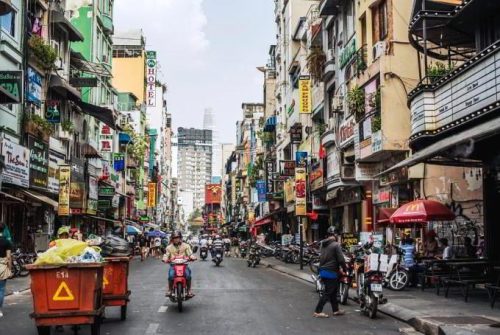
Pham ngu lao, city centre. The country has attracted foreign investment. Occupying a central place in the economic dynamism of the country. Pixabay
The “socialist-oriented economy” means that the Communist Party respects and guarantees the functioning of the mechanisms of the market economy, but under its control and while maintaining a monopoly on political power. Party cells operate in public and private companies above a certain size. Any challenge to the system is banned and repressed. Opponents who dare to challenge the system pay with their freedom. The population does not challenge the political system, or, in any case, cannot challenge it. They lead their lives quite freely to the extent that they accept the control of the party-state. This control, which is reinforced by propaganda, is very real without assuming the intensity of Chinese totalitarian methods.
Political stability, freedom of enterprise, modest wages given the absence of freedom of association, and openness to the world are the ingredients of success, starting from a low level of development. ‘Doi Moi’ has released the energies and highlighted the qualities of the Vietnamese people: hard work, tenacity, and a positive spirit looking to the future that contrasts with the victim mentality found in some formerly colonized countries.
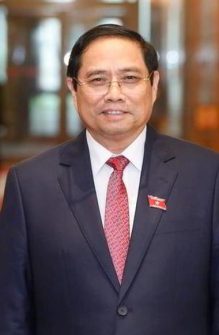
Prime Minister of Vietnam, Phạm Minh Chính. PM Office
The culture of ancient Vietnam persists with its deep-rooted traditions, such as ancestor worship and traditional values: of family, work, success, and nationalism, despite the profound and not always positive effects of the consumer society. The government strictly regulates recognized religions or beliefs, including Buddhism, Confucianism and Catholicism. Christians, mostly Catholics, represent almost a tenth of the population.While economic progress and stability are evident, there are also grey areas. Thus, two presidents of the Republic were successively dismissed, in 2023 and 2024, by order of the party’s general secretary, for corruption-related cases. The current head of state since May 2024 is Tô Lâm, the general secretary of the Communist Party of Vietnam is Nguyễn Phú Trọng, while the prime minister is Phạm Minh Chính.
In a system without freedom of the press and expression, corruption is even more rampant than elsewhere. As a result, corrupt officials are among the new rich. Under these conditions, the “socialist rule of law” can only remain a theoretical goal. In the new Vietnam, the increase in inequality is striking with the appearance of a new bourgeoisie more or less tied to the party.
As in China, the Marxist dogma of class struggle has been abandoned while maintaining the domination of the Communist Party. A fairly basic social security system makes it possible to remedy, to a certain extent, the difficulties of life for the working classes.
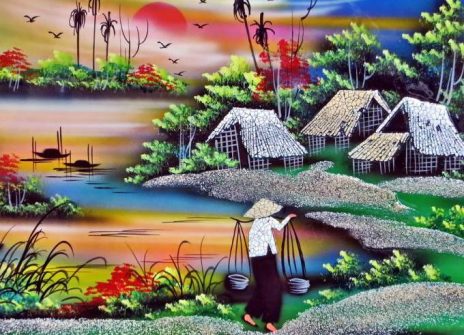
The culture of ancient Vietnam persists with its deep-rooted traditions. Illustration Pixabay
Poverty is even more widespread among ethnic minorities. Family solidarity, which is real in a society marked by Confucianism, makes up for these inadequacies. In order to raise the level of primary and secondary education, the country has opened education, with questionable results, to foreign private schools, mainly English-speaking. The state has authorized the establishment of a single private Vietnamese university, an initiative of a private group. Rapid growth has led to a steady and significant increase in the middle class. The United Nations Human Development Index, which combines criteria based on GDP per capita, life expectancy and education, places Vietnam on par (115th out of 191) with Indonesia and the Philippines. Vietnam’s economy has recently become the third largest country in the Association of Southeast Asian Nations (ASEAN), just behind these two most populous countries. Less rigid than China in its birth control policy, the country has succeeded in its demographic transition. In 2024, it will have more than one hundred million inhabitants. Its modern lifestyle could influence the birth rate.
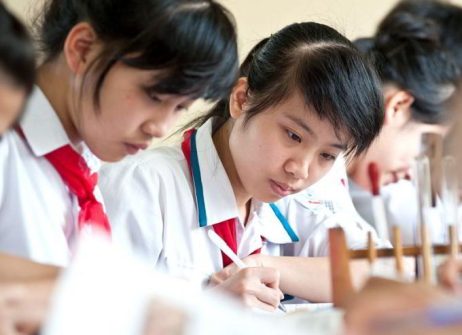
Vietnamese students. The country has opened education, to foreign private schools. Photo Viet Tuan Tran/ADB
China has had a strong influence on the entire history and culture of the country since the time – the first millennium – when it occupied the northern cradle of the country. The centre of today’s Vietnam was Hindu Champa, defeated and occupied in the second millennium by the Dai Viet (the ancient name of Vietnam); the South was Khmer. This strong Chinese imprint persisted, even after the liberation from occupation by the Middle Kingdom, of which it remained a tributary state. It was the French who ended this link to colonize the country and leave their mark on it.The Vietnamese have regularly repelled invaders from the Central Country (this is how China is translated in both Vietnamese and Chinese), the last time in 1979. Vietnam is therefore the only state in the world to have been occupied by three members of the Security Council: France, the United States and China.
Whatever the ties between China and Vietnam, now governed by the world’s two largest communist parties, the powerful neighbour inspires distrust. Vietnam faces Beijing’s stranglehold on the atolls of the East Sea, over which it also claims sovereignty. It is doubtful that the country’s development will be of such a nature as to remove Chinese power. Hanoi’s foreign policy consists of not forming any alliances while modulating its relations to resist pressure: this is bamboo diplomacy, both solid and flexible. In 2023, Xi Jinping’s visit was soon followed by Joe Biden’s visit to Vietnam for a “broad strategic partnership”. The European Union has concluded a free trade agreement with Hanoi, which is almost unique in the region.
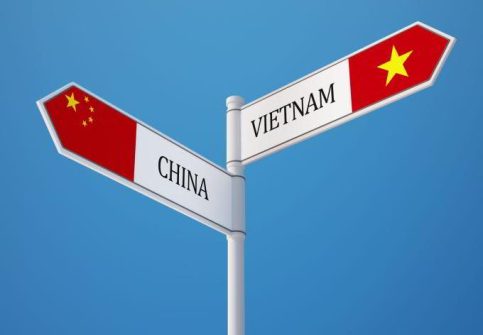
Whatever the ties between China and Vietnam, now governed by the world’s two largest communist parties, the powerful neighbour inspires distrust. 123rf
Is the new Vietnam a model? The pragmatism it has shown, in contradiction to Marxist dogma, by opening its economy to the private sector and the world, is an example. It allows the raising of the standard of living of a growing part of the population and economic modernization. The commitment of its leaders to the development of the country could be a source of inspiration elsewhere, even if it is the result of a particular history. To this success must be added the stability and security that reign in the country. On the other hand, the shortcomings noted above – widespread corruption, inequality and lack of political freedom – cloud the ranking. Political pluralism, characteristic of the modernity that emerged from the Enlightenment, is and will remain excluded in Vietnam for the foreseeable future. Its absence, as we have seen, hinders the fight against corruption and the establishment of a genuine rule of law. Perestroika without glasnost, to use Gorbachev’s terminology, is the model followed by both Hanoi and Beijing with the economic success we are witnessing. Even if “bamboo diplomacy” will allow Vietnam to maintain its independence, the future of its political regime cannot be read independently of that of China. During Xi Jinping’s visit in 2023, the two countries declared that they share a “communion of destinies” (“a common future” in the Vietnamese text) and committed to fighting “political evolution” and the “colour revolution” concerning the democratic changes in Georgia and Ukraine some twenty years ago. (Photo: Salt field. Pixabay)
Philippe Jottard/ME



